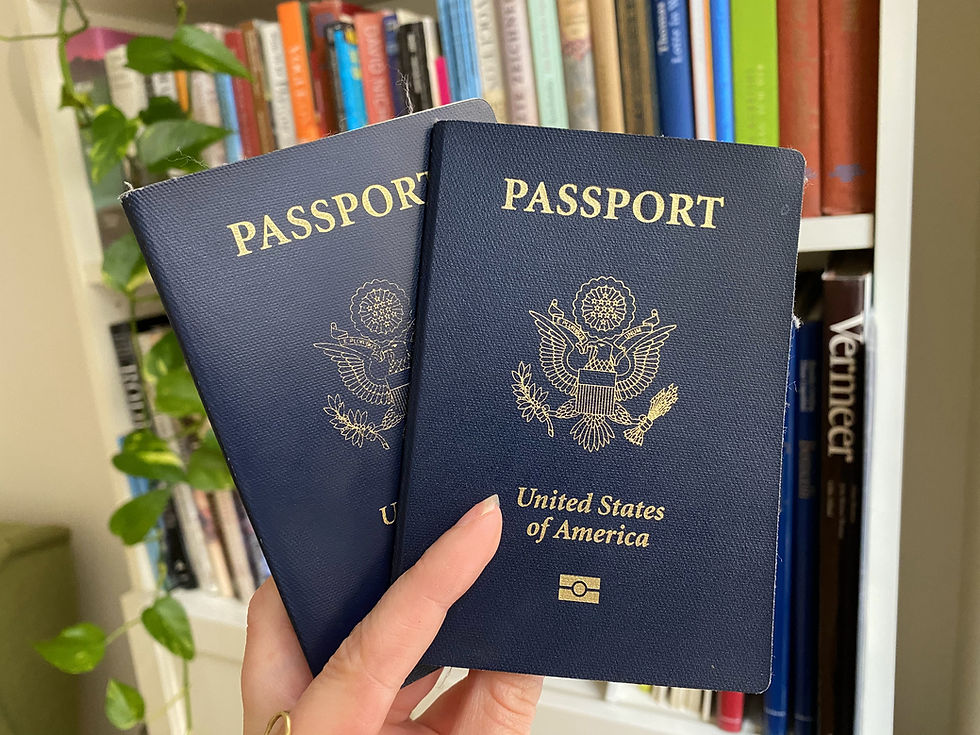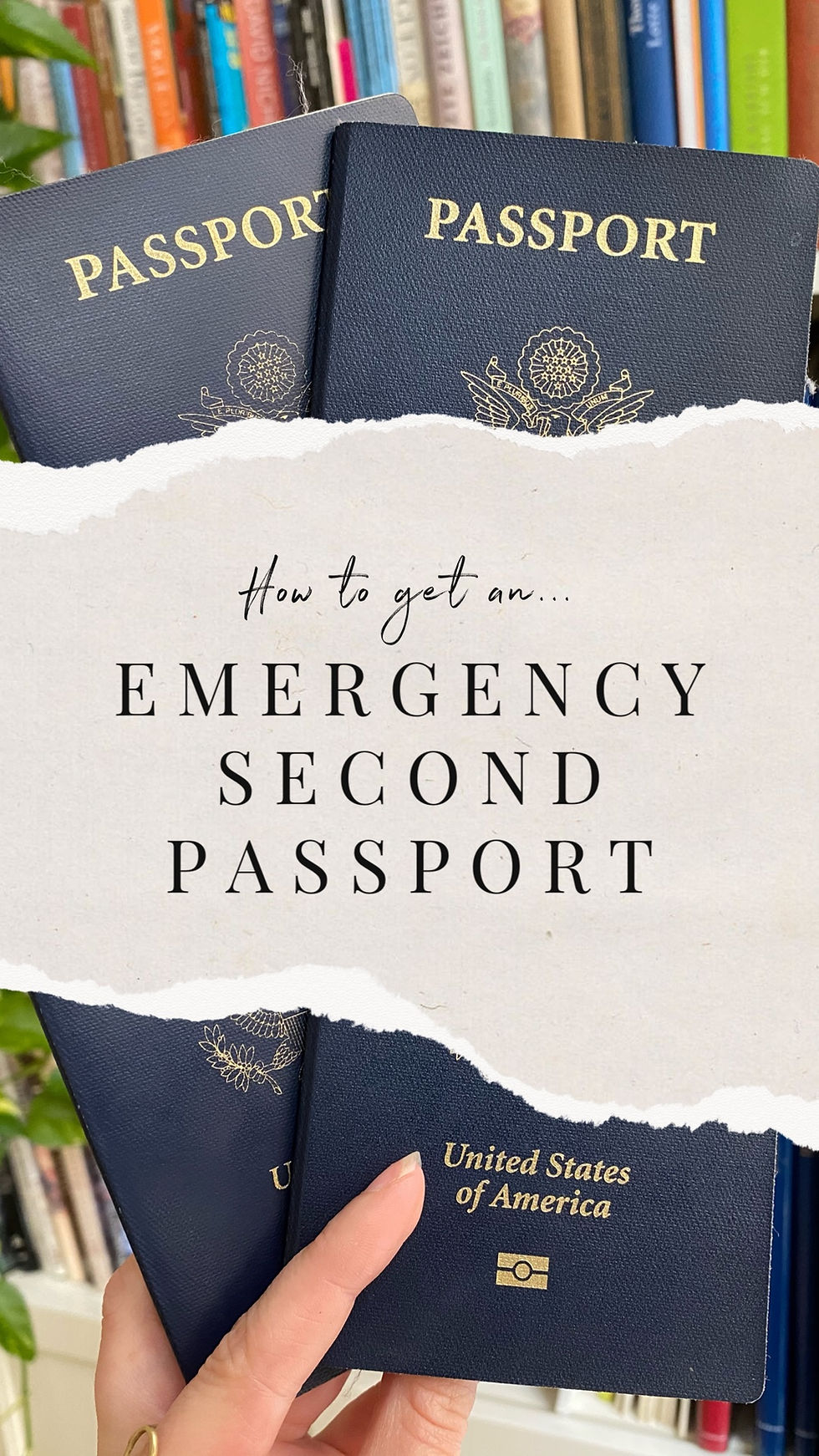- Liza Miezejeski
- Apr 3, 2021
- 3 min read
Updated: Jun 21, 2022
In the event that your travel date is approaching and your visa still hasn't been approved, you can apply for an emergency second passport.

Not just anyone can apply to have two passports, it's actually usually illegal. But, if you meet certain criteria, an exception will be made for you.
This passport will have limited validity, usually one or two years (mine was issued for four years. I don't know why - possibly because they wanted it to last for my entire degree? not entirely sure, but I appreciate it!) It will also have fewer pages than a normal passport. Otherwise, it acts the same as a normal passport.
What are the requirements?
The Department of State specifies four situations when it is allowed.
"A foreign country will deny a visa or entry to you because your passport has stamps showing travel to certain countries."
"You need multiple visas on an ongoing basis because of frequent international travel."
"You need a U.S. passport for urgent international travel but your application for a foreign visa is delayed or cannot be processed in time for your travel."
"When you need a special validation for travel to a restricted country or area."
Mine was issued because of the 3rd situation. My visa was still processing, but my travel date was in less than 3 weeks. I guess school was considered "urgent travel," so the Department of State allowed it.
Also, I almost had a second passport issued when I lived in Malaysia because of situation 2. The Malaysian government required that I hand in my passport to cancel my visa a month before leaving. However, at the same time, I had to be applying to renew my Czech visa. (It ended up working out that I didn't need it, but I'll make a post about that mess of a situation another day.)
Customs & Immigration
This is totally legal, but when you're going through immigration in the airport and they ask you your purpose of travel, they could be thrown off when you say to study because you don't have a visa (it's illegal to study in a university abroad without having a visa).
There are two options:
This is totally legal, so just tell the truth. When they ask where your visa is, refer them to the last page of the passport where there will be a stamp that says, "This passport expires [date] and was issued by the Department of State under 22 CFR 51.2.B." Explain that it was issued because your student visa is still in processing, but your studies start soon. I would keep on hand your confirmation of visa submission, confirmation of study at your university, and any other official documents that they might ask for. And tell them that once your visa is approved it will be mailed to you and you will check in with the foreign police after its arrival.
I probably shouldn't give this advice, but you can lie. Sometimes it's just easier to say you're a tourist visiting for less than 90 days. Usually, it's no questions asked and they let you go. But, lying to the immigration police is illegal so, pick your battles.
Getting the Visa Once it's Approved
Once your visa is approved, you are only allowed to pick it up in the specific embassy or consulate that you applied in or from your address in your home country. Unfortunately, they will not mail it to you abroad.
Again there are two options here, both legal this time.
Have a family member (or maybe a close friend if you tell the embassy/consulate in advance) pick up the visa and mail it to you. Mailing a passport is kind of sketchy, but this is the cheapest option. I recommend sending it with a really secure service (I used DHL) and have it overnighted.
Also, don't miss the package! It will more likely get lost if you do. I spoke to my university reception and they agreed it would be okay if I sent it there since it was important documents. Since someone is always sitting at the reception desk, it was very unlikely that the delivery would be missed.
Go back to your home country to pick up the visa and passport. This is the safest option so I guess if you have the money for it, go for it. But, overnight shipping with DHL is $90 and a round trip flight is about $500, so it's up to you.
How can I apply?
The Department of State has detailed information here: https://travel.state.gov/content/travel/en/passports/have-passport/second-passport-book.html
Edited by Sophia Pedigo
Pin this post:









